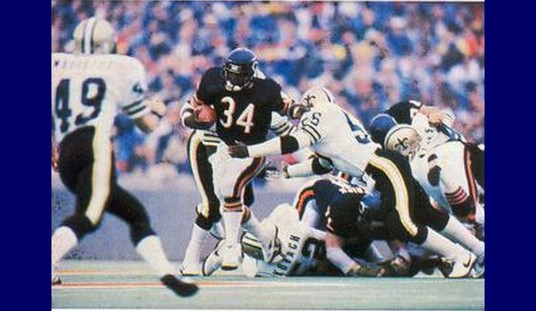Yesterday, I wrote this story I referred to as “Shorting for Dummies” which went into some detail — from my laymen’s perspective and experiences — on what has happened this week involving the stock of the video game seller GameStop, Wall Street hedge funds, and an online investor community on the bulletin boards of Redditt.
Now, today comes a “signal” from a prominent Wall Street firm reminiscent of this:
Citron Research: "No mas." pic.twitter.com/aDj6ymfEUj
— shipwreckedcrew (@shipwreckedcrew) January 29, 2021
Citron Research is an investment company — originally founded as “StockLemon.com” — that has focused on “shorting” over-valued stocks for more than 20 years, and published a popular newsletter and reports of analysis on companies viewed as overvalued or engaged in fraud. The investor behind Citron, Andrew Left, has been described by the New York Times as “The Bounty Hunter of Wall Street.”
Citron was one of the Wall Street firms with a significant “short” position in GameStop, meaning his investment would have benefitted by a collapse of GameStop’s stock price, but Citron closed out its short position this week among the frenzy of buying and selling that has had the price move in wild gyrations between $100 and $500 a share. Earlier in the week, Left made a comment in the media that GameStop’s share price would eventually crash back down to $20 share — but it seems like he couldn’t afford to wait for that to happen and has taken a loss on his position in closing it out.
But today comes the announcement from Left that Citron will no longer be publishing its newsletter on targets for short investors. Citron will now be focusing on “long” investment opportunities — promoting the buying of shares of companies that Citron believes will go higher in the weeks and months ahead.
This is a bigger concession than one might imagine. A noted “short” investor is basically conceding that the “jig is up.” It is a recognition that a meaningful short position now has exposure to coordinated action by retail investors that will cost the short seller massive amounts of money over a very short period of time in circumstances where it is unlikely that the short investor can mitigate or avoid the loss.
One complication of “short” investing is that the “risk” of loss is normally secured by liquid assets held in an account which is controlled by the brokerage house conducting the trades on behalf of those investors. The brokerage agreement allows the brokerage house to invade the assets in that account to “make good” the losses incurred in short positions that go the wrong direction.
There are any number of such arrangements, and the terms are always subject to the specific agreement between the parties — and the SEC regulations — but the basic arrangement generally is that the broker holding the “short” position for the investor also has access to that account to “foreclose” on other assets to satisfy losses from a short position gone wrong.
They do this because an “open” short position constitutes an existing and continuing future liability — at some point, the “borrowed” stock that is reflected in that short position must be purchased and replaced by the brokerage house that sold it short for the investor. Until that purchase and replacement takes place, the amount of the loss to the investor remains unknown. Eventually, the investor must come up with the additional money needed to close out the position by purchasing the now more expensive stock.
So, for example, assume Citron had a short position of 10,000 shares on Gamestop, having sold “borrowed” GameStop shares at $35. To close the position at “even” — no losses or gains (not counting commissions) — Citron would use the $350,000 to buy those shares that it received when it sold them short.
But when the price of Gamestop hit $350 a share, Citron needed $3.5 million to buy 10,000 shares to close out its GameStop short position. The question that arises at the brokerage is “When we pick up the phone and call Citron, where will they get the addition $3.15 million they need for us to buy 10,000 GameStop shares?”
If Citron can’t write that check, the brokerage house is authorized by the brokerage agreement to withdraw cash from Citron’s account to do so, or to sell out other positions in Citron’s account to raise that $3.15 million so the brokerage can close out the short position. Citron eats the losses — whatever they might be — from all the transactions necessary to close out the short position.
On Wednesday it was reported that the hedge fund which had headed up the aggressive shorting of GameStop — Melvin Capital — received a cash infusion from two other large investment companies, Citadel and Point72, totaling $2.75 billion. This was likely the money that had been demanded from Melvin by brokers to use to begin to unwind Melvin Capital’s short position, which it was reported to have closed out in the wild trading session on Tuesday. To do that, Melvin either surrendered highly valuable collateral to secure that funding as a loan, or the owners of Melvin sold off a chunk of their own company just to survive.
Now, you have a prominent leader in the short-selling community on Wall Street waving a white flag of surrender to organized retail investors. This is a recognition that the GameStop maneuver can be replicated in the future, with the risk to short investors being immediate and potentially devastating.
Chalk this one up as a “W” for the Redditt buyers and an “L” for Wall Street.














Join the conversation as a VIP Member